
This September marks the 50th anniversary of the Chilean coup of 1973, which saw the overthrow of Salvador Allende’s democratically-elected left-wing government and its replacement by a military dictatorship.
Looking back, this is a key moment for all manner of reasons, including the failure of ‘the democratic road to socialism’, the subsequent involvement of the Chicago boys and the birth of neo-liberalism, the role of the CIA and later the spread of Operation Condor, the emergence of the world-wide Chilean solidarity movement and much more.
Chile 1973 was so important and widely covered that it makes for a fascinating test case in how to use different sources to study an event/epoch.
We have therefore dug out a selection of different types of material to both inform you about the coup and about how to use the collections and resources available in the University of Sussex Library.
Printed primary sources
The first collection we searched was the British Library for Development Studies (BLDS) Legacy Collection, a vast repository of government and international organisation material drawn from countries across the Global South.
There are over 250,000 items in the BLDS Legacy Collection, and with many of them being long runs of journals and government reports it is inevitable that our quick title search will only have scratched the surface. However, my colleague Beth still found a variety of different types of source material from both Chile and elsewhere.
First of all we have two political pamphlets produced by the Communist Party of India (Chile: Popular Unity against Fascism) and the Communist Party of India (Marxist) (Anatomy of a U.S. Imperialist Coup). Both of these are fascinating contemporary documents which site the coup in the world political situation of 1973. For instance, in the introduction to the former pamphlet the CPI states overtly ‘The ideological battle over the Chilean events and their interpretation are an integral part of the struggle to build the unity of the left and democratic forces … and win a decisive shift to the left in India’.

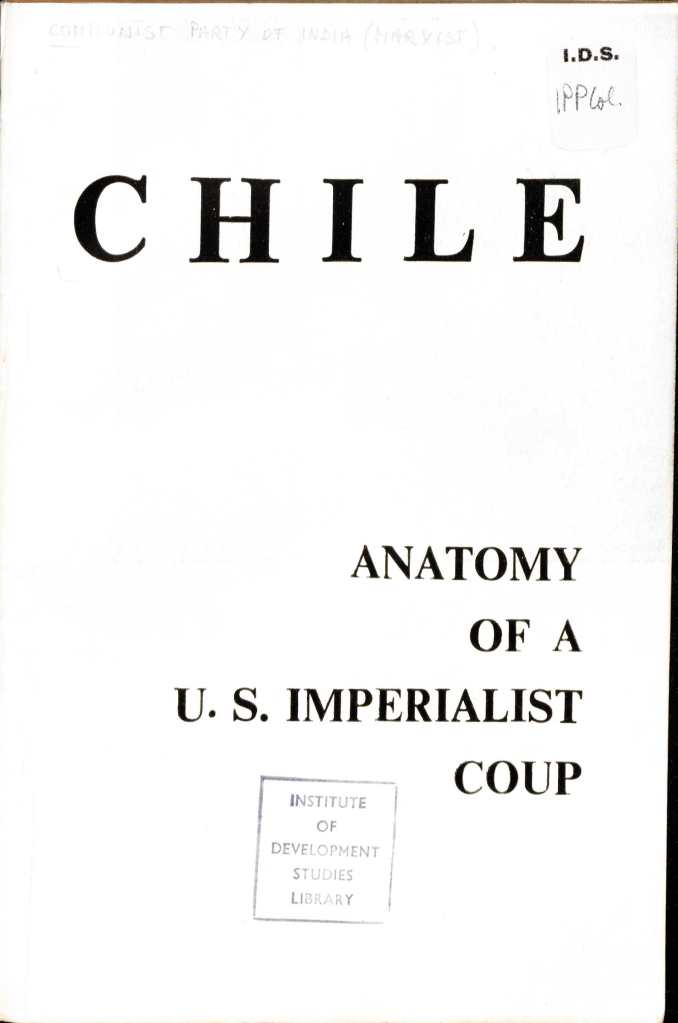

We also hold a copy of the Resolutions of the Central Committee: Meeting in Calcutta from November 22 to 27, 1973 – a very different type of document from the CPI (M), but one which again shows the value of studying material produced without the benefit of hindsight, with its optimistic/deluded claim that the Popular Unity Bloc ‘would ultimately triumph’.
The BLDS Legacy Collection also contains an International Organisation section, and it’s here that we can find material illustrating the far-reaching human rights implications of the dictatorship, for example with two reports of meetings of the International Commission of Enquiry into the Crimes of the Military Junta in Chile, one which took place in Mexico in 1975 and the other in Denmark in 1979. These provide harrowing witness accounts of atrocities as well as a series of demands upon the regime – and are also fascinating reads ‘against the grain’ in terms of Cold War politics, with the notable absence of US/UK delegates and interestingly strong Scandinavian presence.


Of course, the majority of relevant material originates from Chile itself. One of the general strengths of the BLDS Legacy Collection is its holdings of development plans, and these are a particularly fertile source for studying both the cause and aftermath of the coup. The plans below cover 1971-76, 1972, 1973-1979, 1973-1980 and 1975-1980, and therefore are perfect for a deep dive to examine the dramatic shift in economic approach from the Santiago Boys to the Chicago Boys.

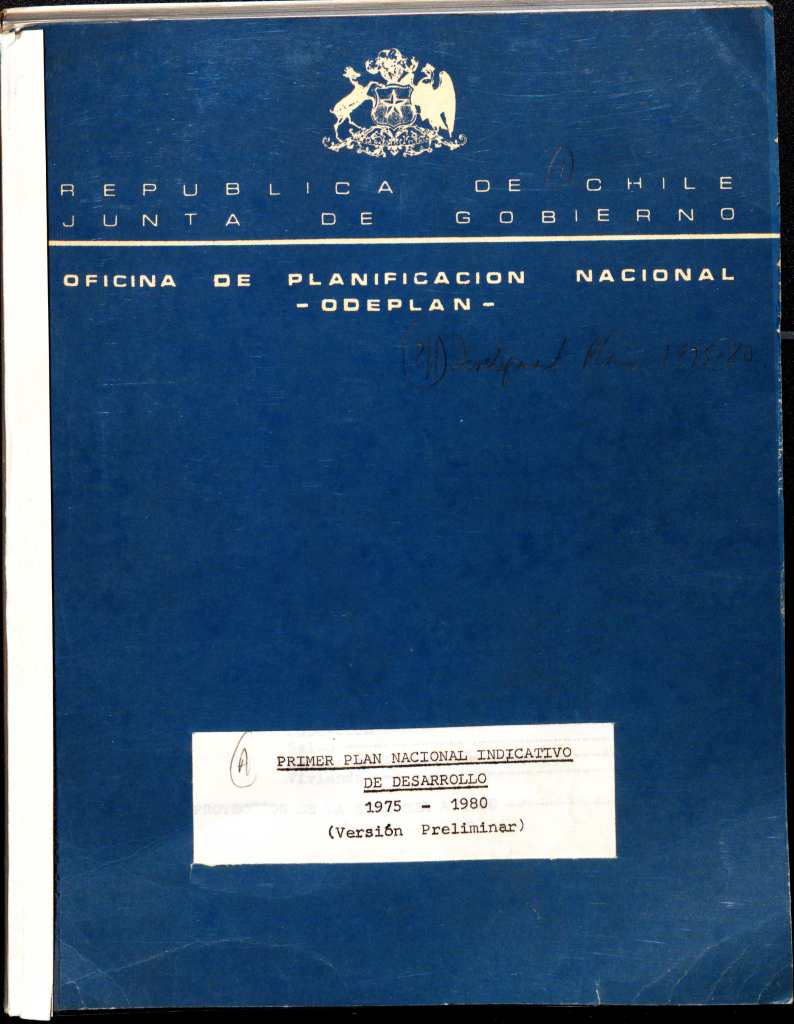


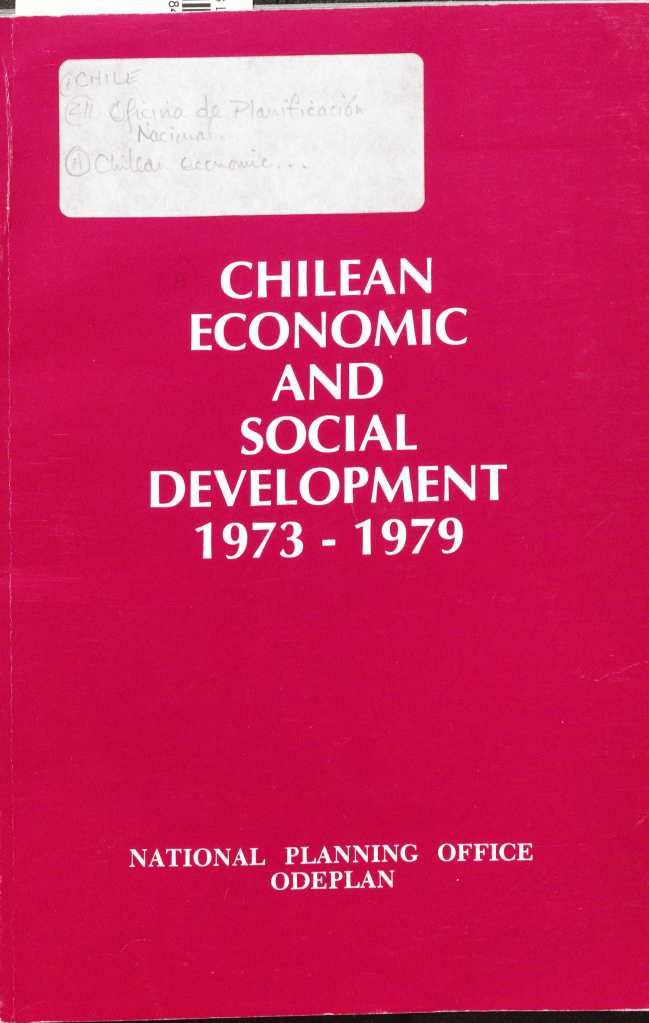

We also hold Decretos Leyes Dictados por la Junta de Gobierno de la Republica de Chile – a comprehensive list of laws promulgated by the military dictatorship in the 1970s – as well as long runs of presidential speeches from the Pinochet era.
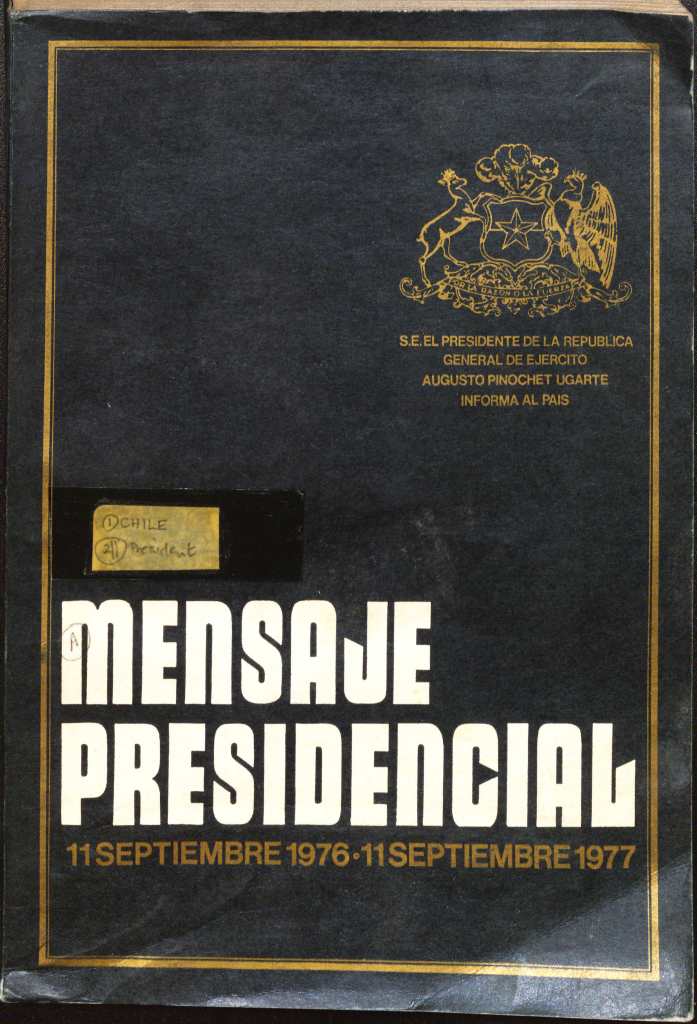

While the BLDS Legacy Collection is primarily international in origin, the library also holds a large Legacy Collection of documents, pamphlets, reports and ephemeral items originating from our original ‘Documents Collection’ and mostly published in the UK. Unsurprisingly the collection features pertinent material – Chile was a cause célèbre on both sides of the political divide, and we hold items from various different perspectives These include The Myth of Allende: an Excerpt from the Totalitarian Temptation from the British-Chilean Council, a group whose largely military/titled nobility membership gives a clue as to where their sympathies lie. You can read the full text of this below:
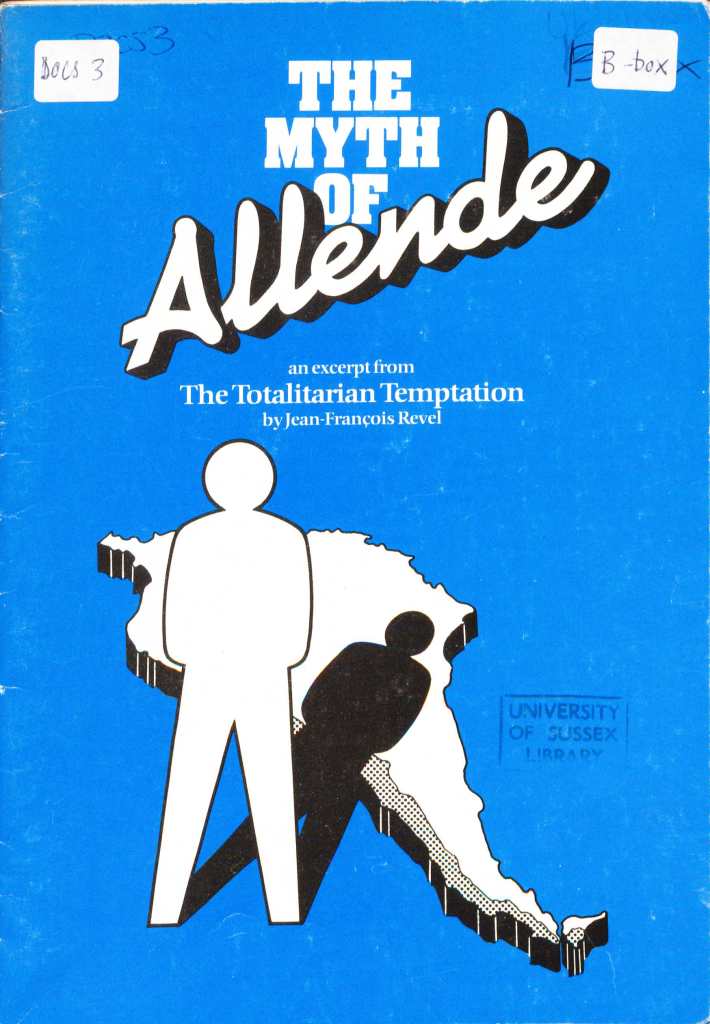
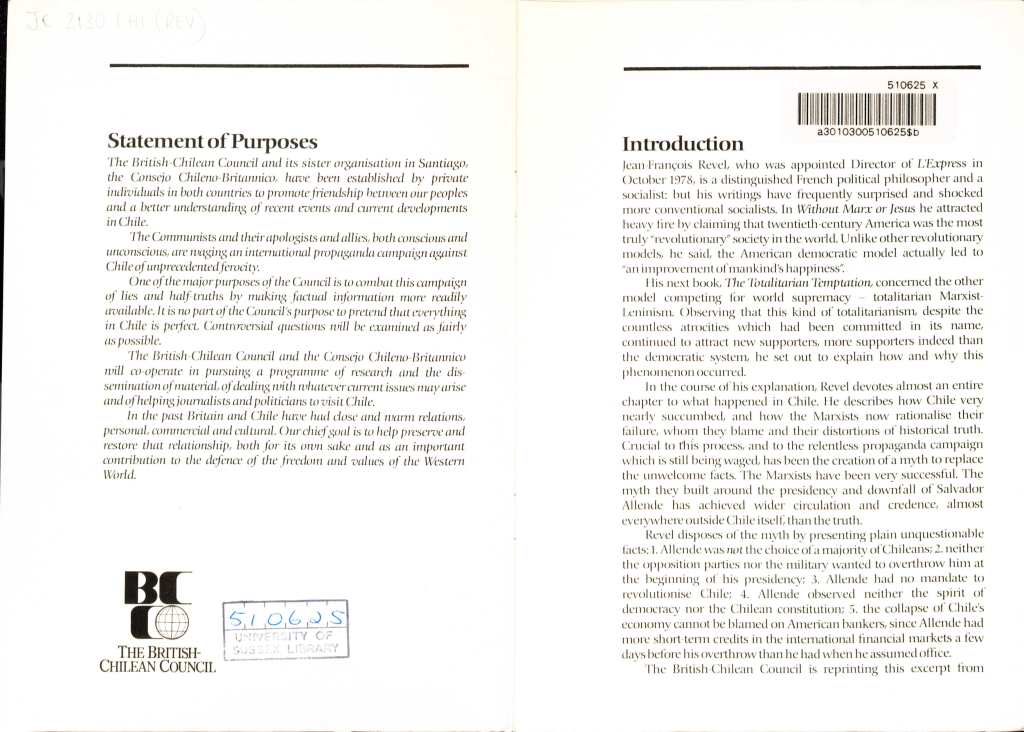






A very different take on the Allende government and the lessons to be learned from it can be found in the Institute for Workers’ Control pamphlet Workers’ Control in Allende’s Chile, a rare print copy of which is held here at Sussex (the full series of IWC pamphlets is available online here). Their conclusion from the coup is stark: ‘for workers to take control successfully of their factories, they must also take control over the government and its armed forces’.
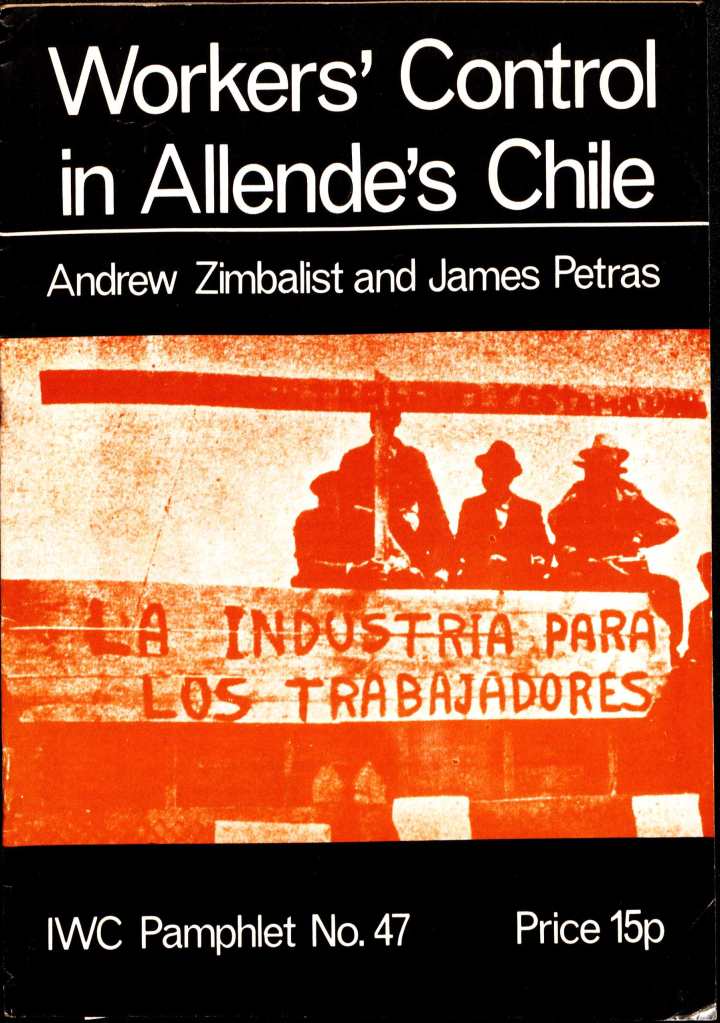




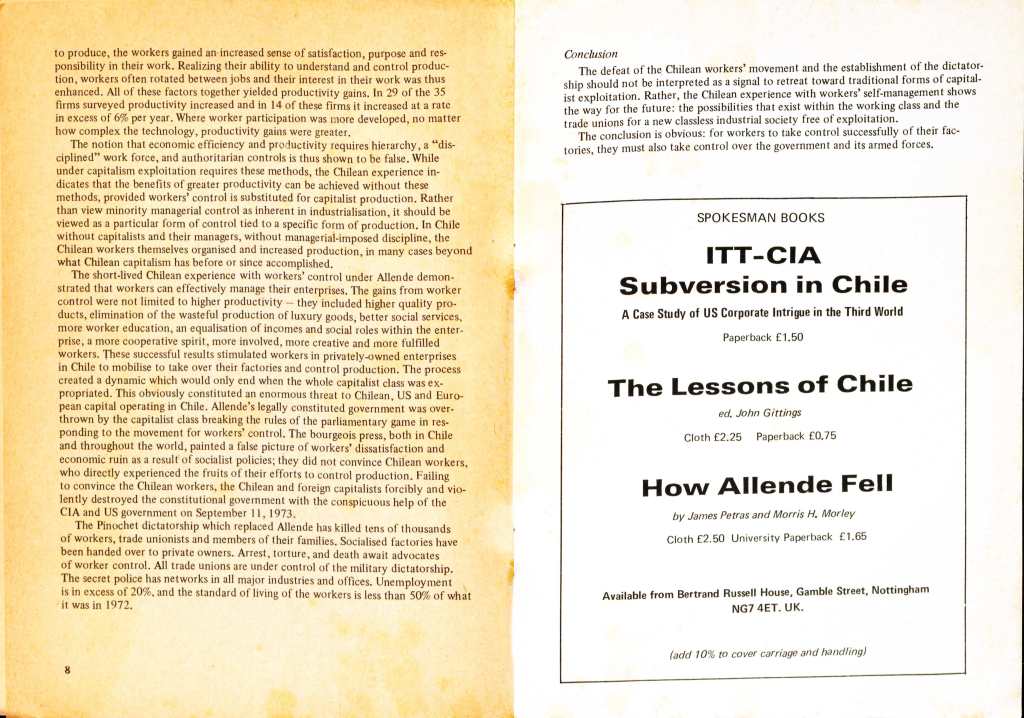
Finally on the primary print side of things, we couldn’t let this opportunity pass without referring to one of our favourite library resources, the bulletins and journals produced by the Cuba-based Tricontinental. These seminal publications were issued as part of the organisation’s efforts to build anti-imperialist solidarity across Africa, Asia and Latin America (the ‘tri-continents’) and as such focussed heavily on events in Chile in the 1970s.
They provide a wealth of articles for researchers interested in Third World/Global South perspectives and Chile is a good test case of how they reward closer research, as Elsa from the Collection Development team has been able to dig out and reproduce a series of relevant pieces from the 1970s including examples focusing on agrarian reform under the Unidad Popular, the increasing tensions among the Allende coalition during 1973, the immediate reaction to the coup (where Chile features on the front cover of Bulletin 83), the role of the CIA, the assassination of Orlando Letelier, Los Desaparecidos (‘disappeared persons’) and much more.
One further thing that will leap out at you if you look through the scans below is the power of the Tricontinental aesthetic – with the choice of images and graphical layout forming an integral role in communicating its message. These sources may traditionally have been used more by history, politics or global studies students – but we believe there is a huge amount here to interest researchers from media or even art history backgrounds.
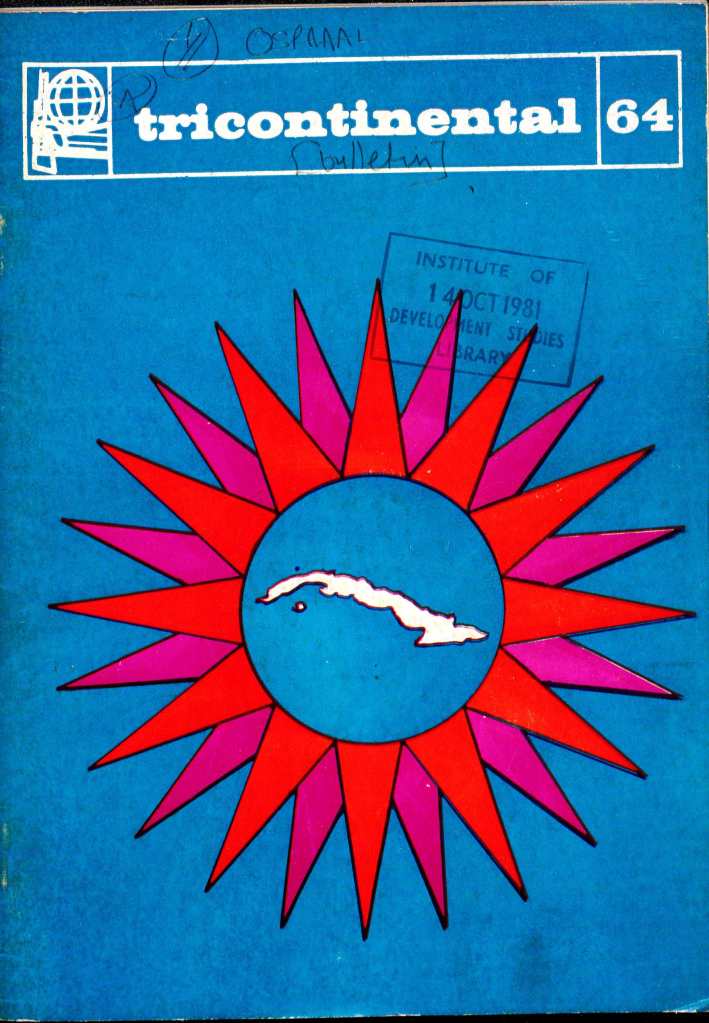


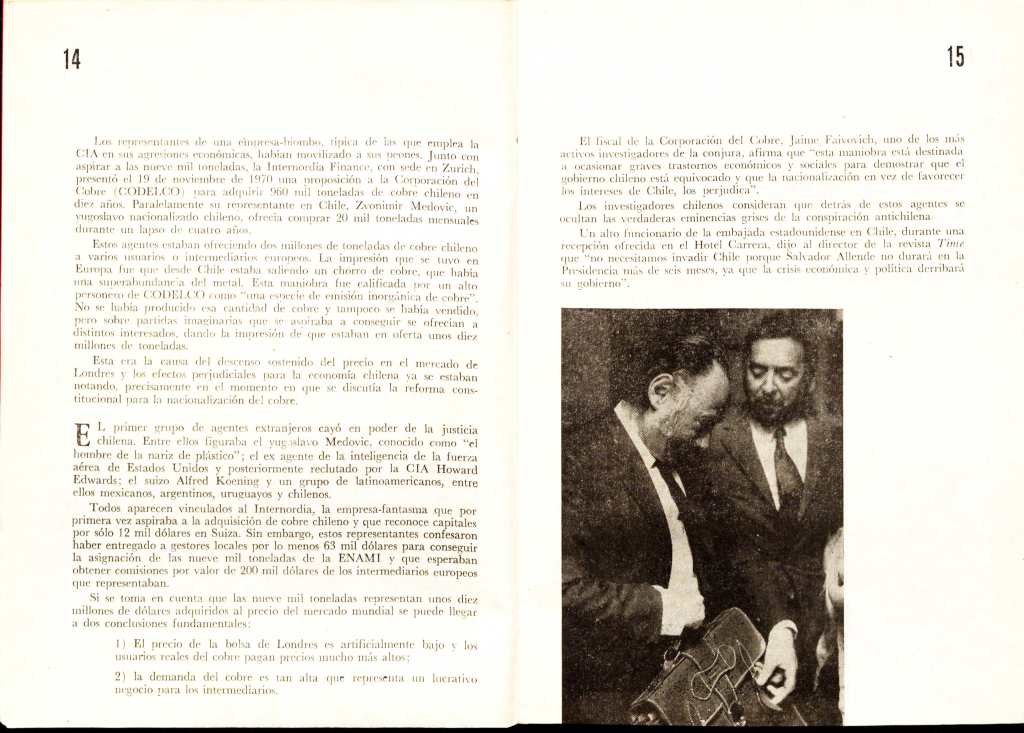




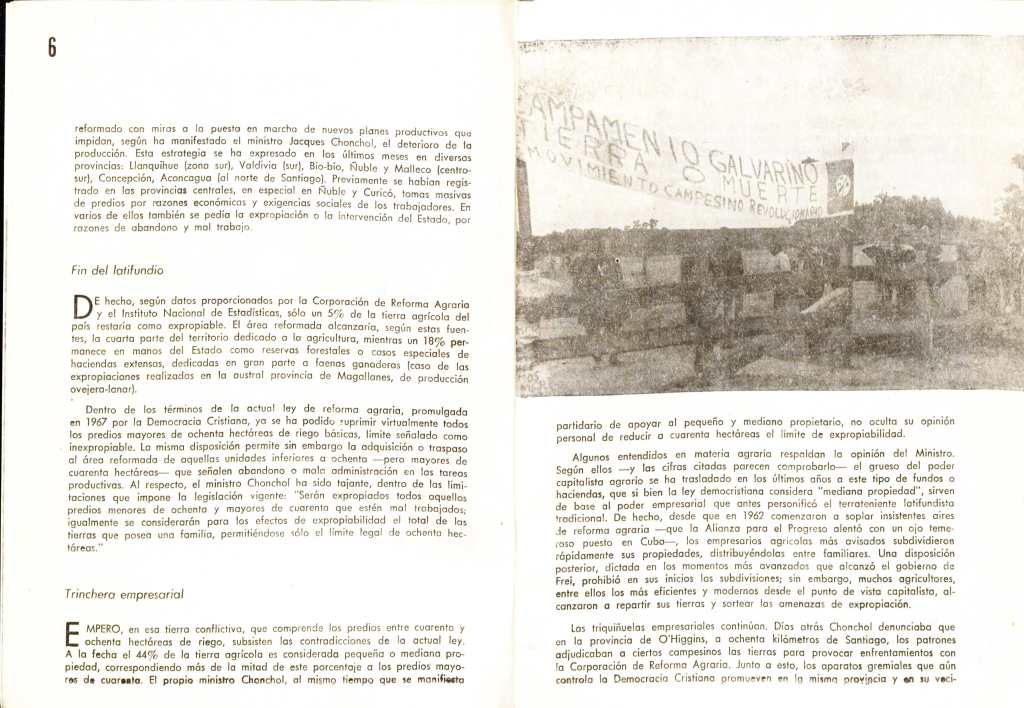

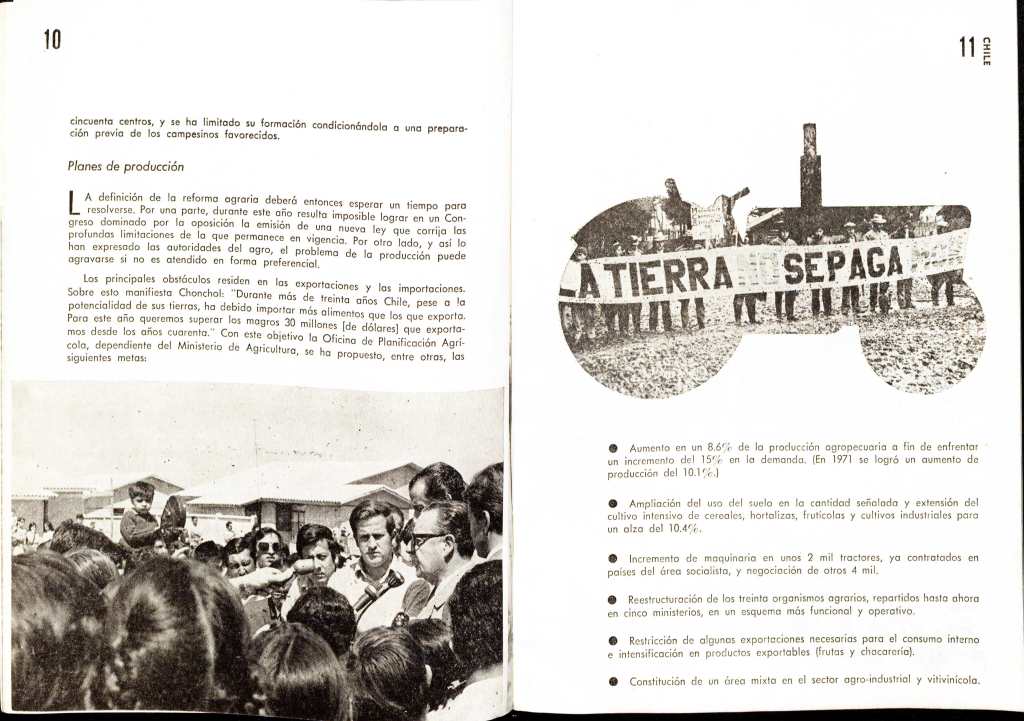









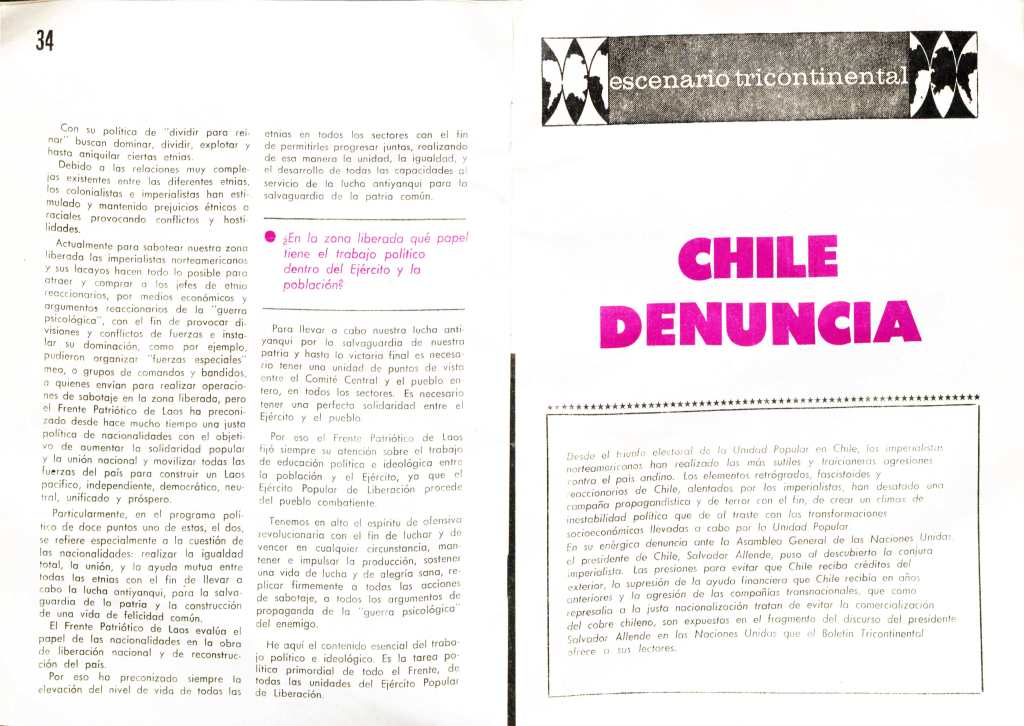
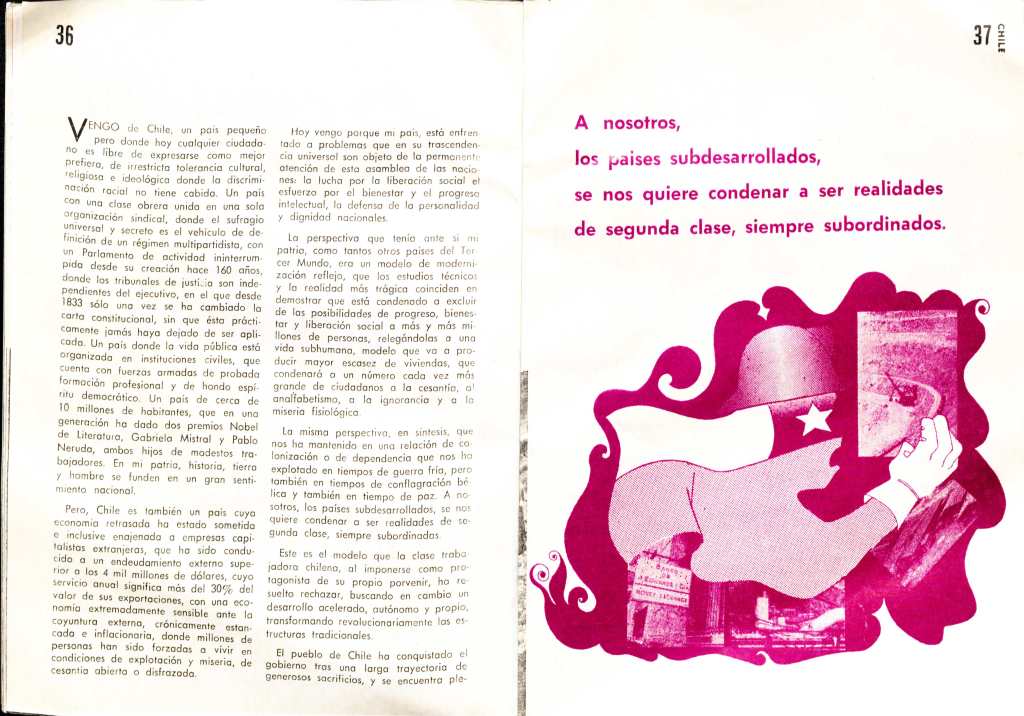
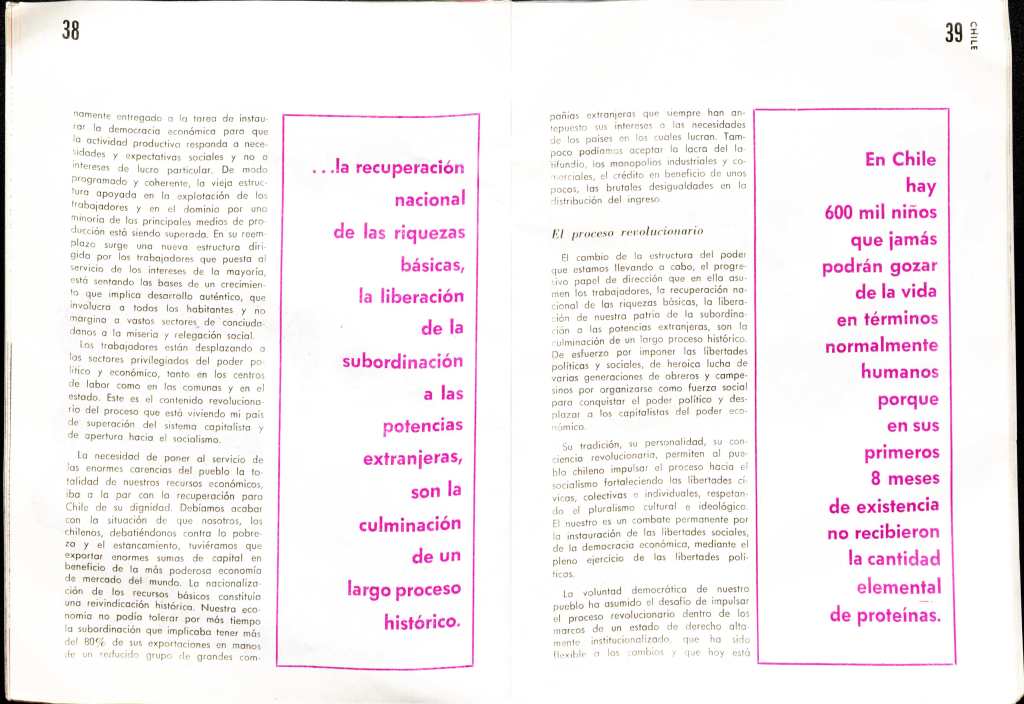



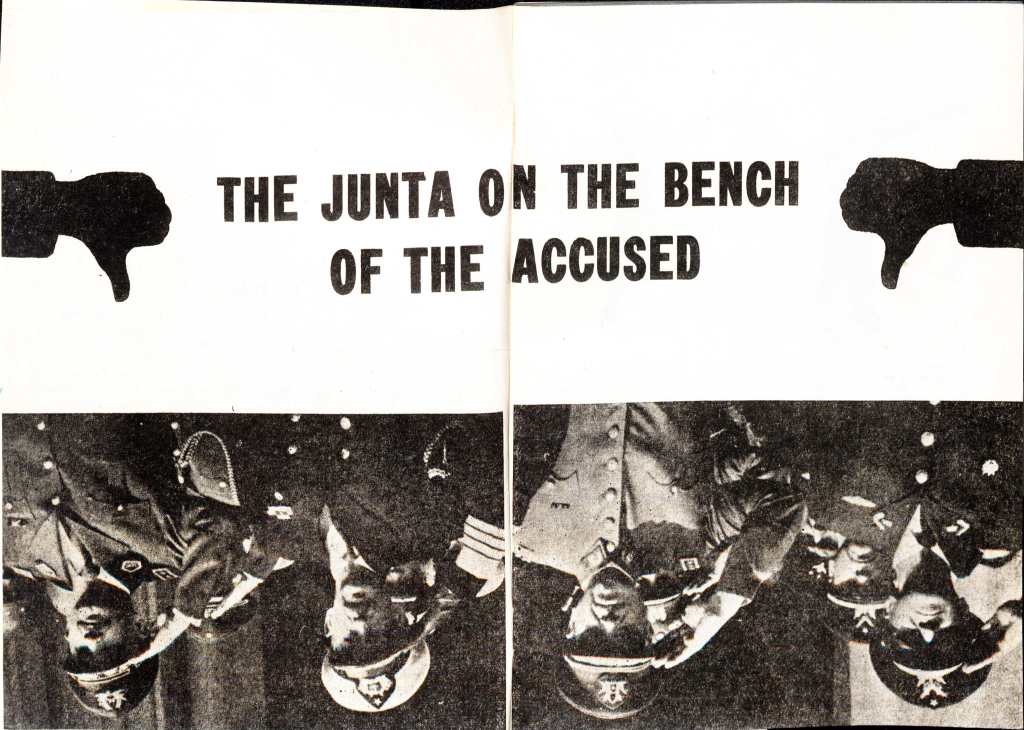

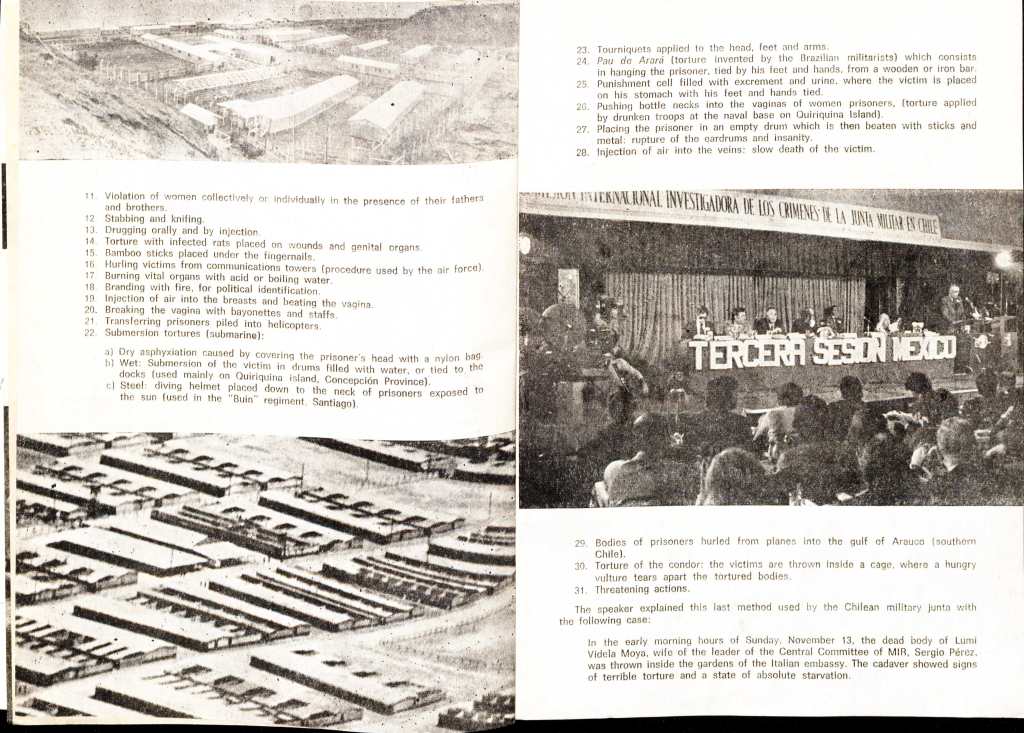

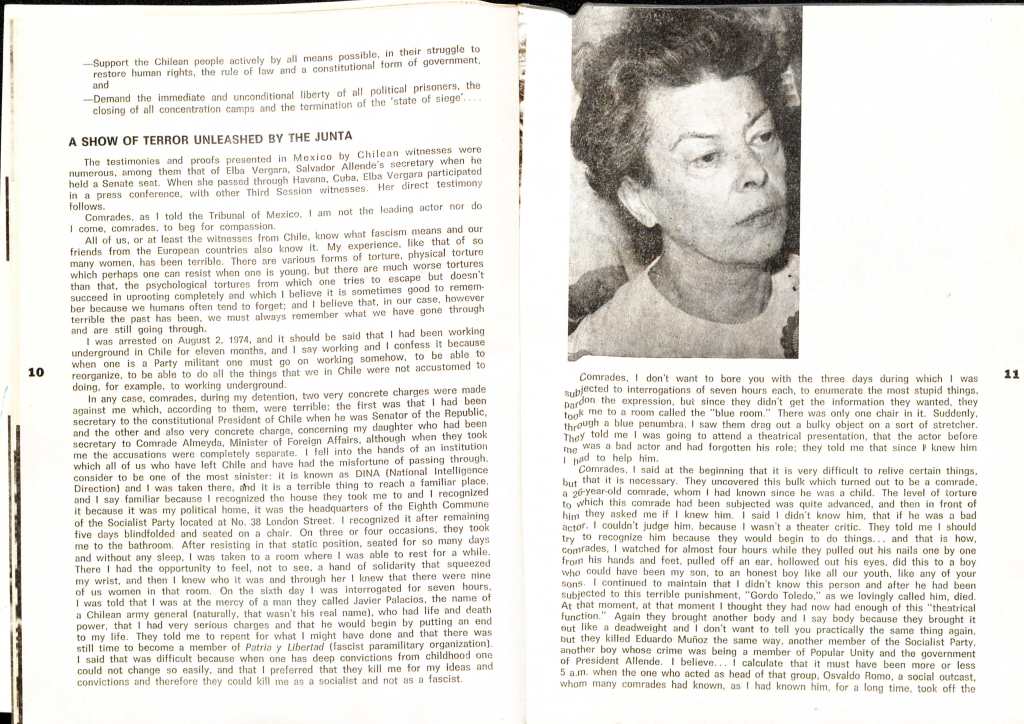





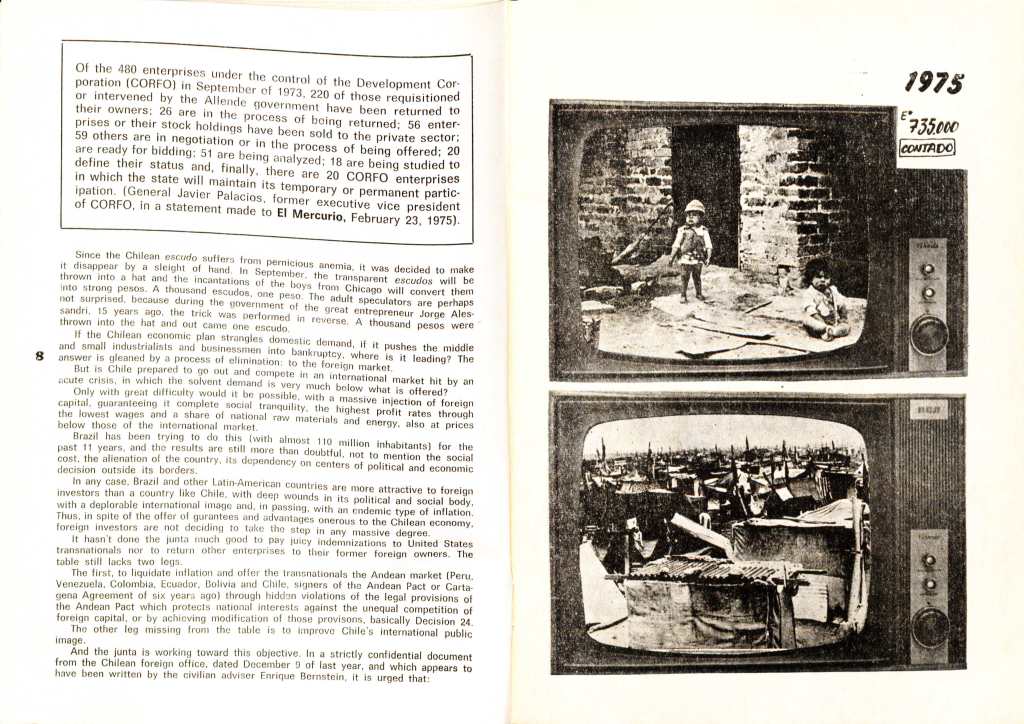



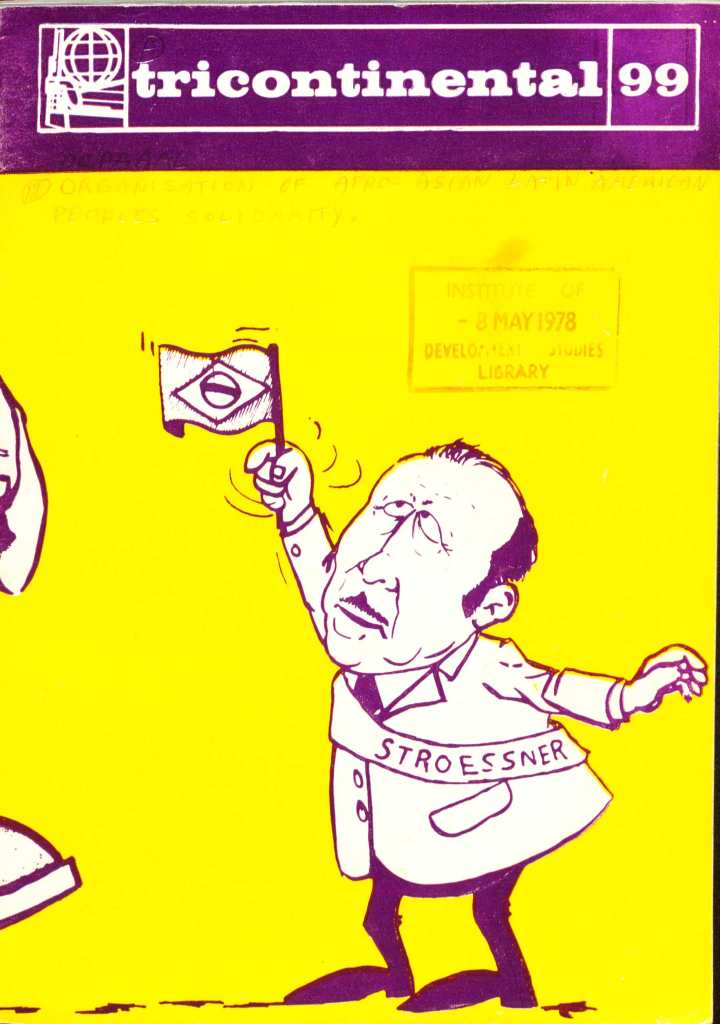
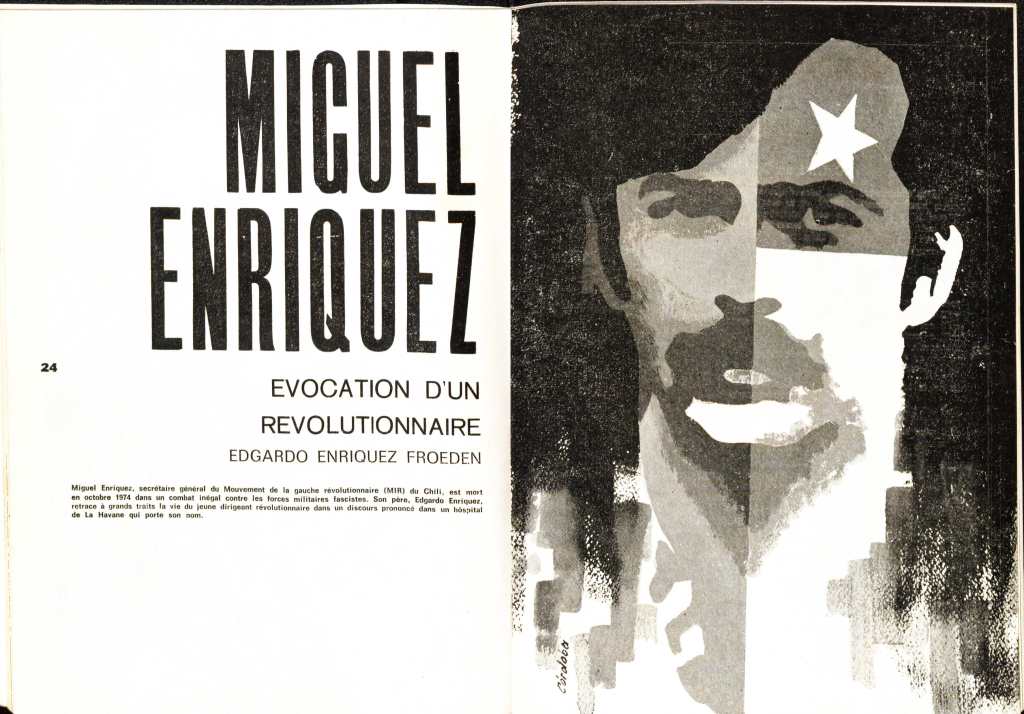

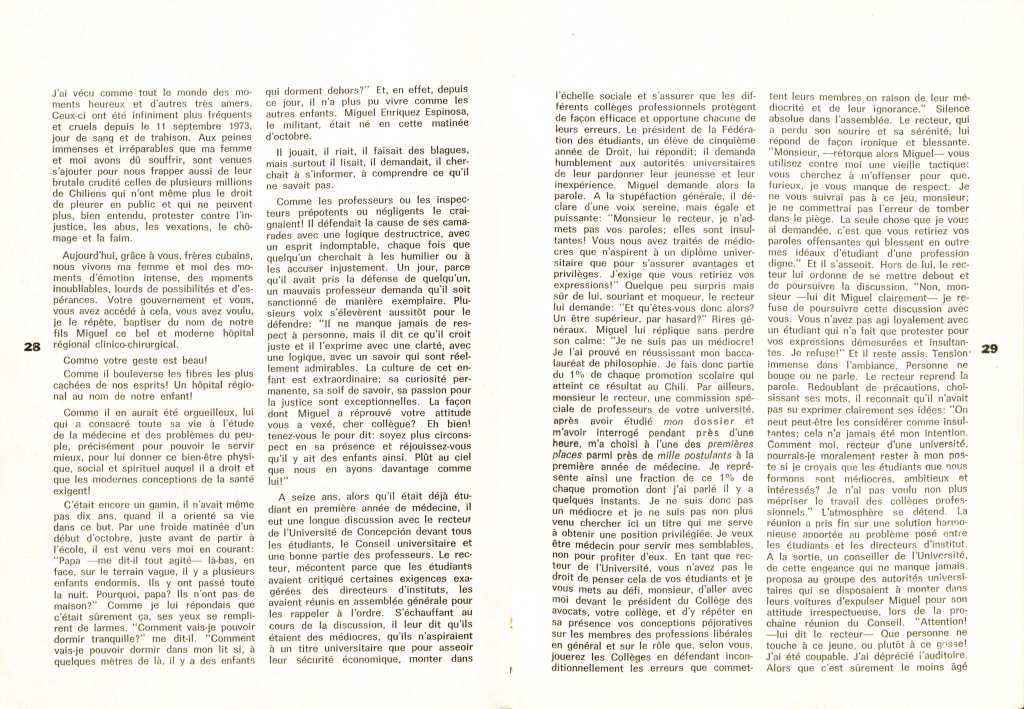






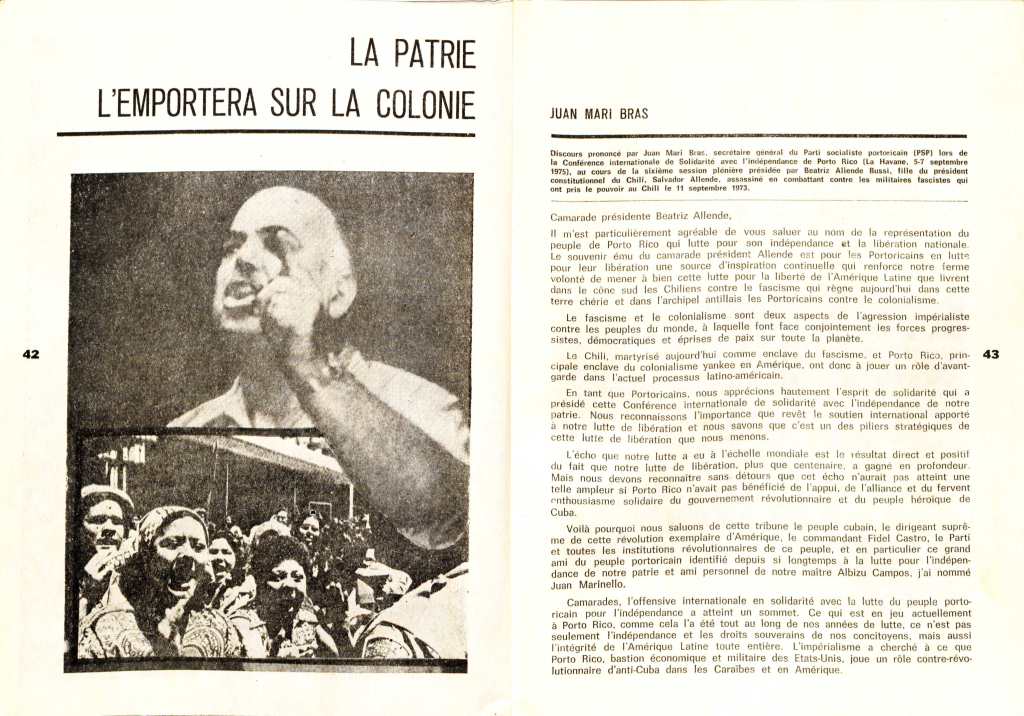





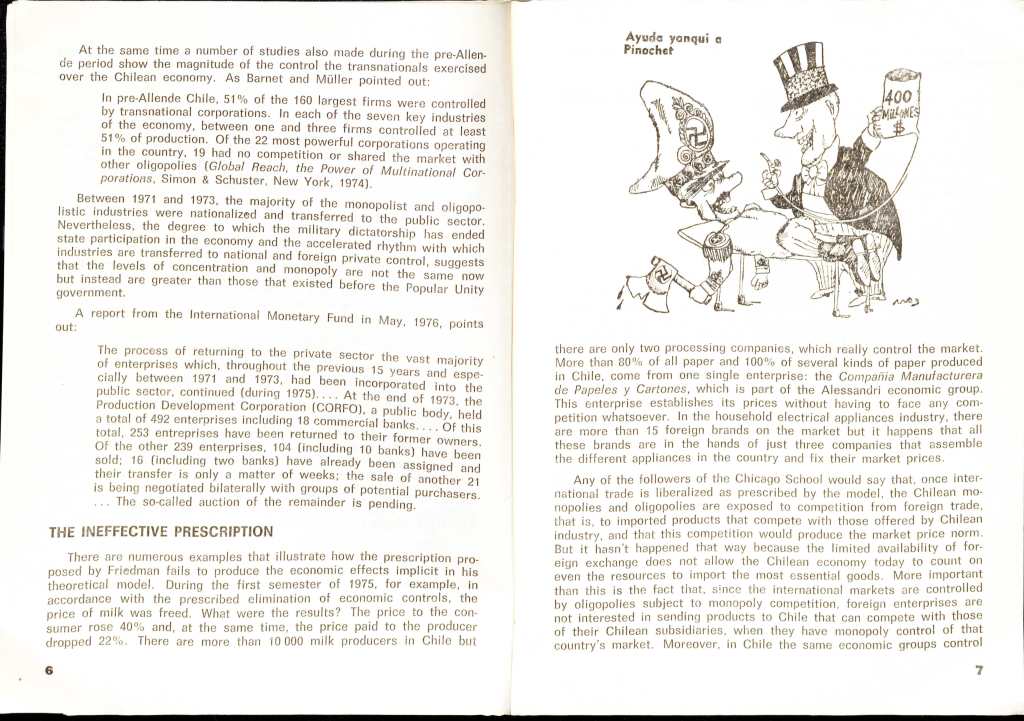





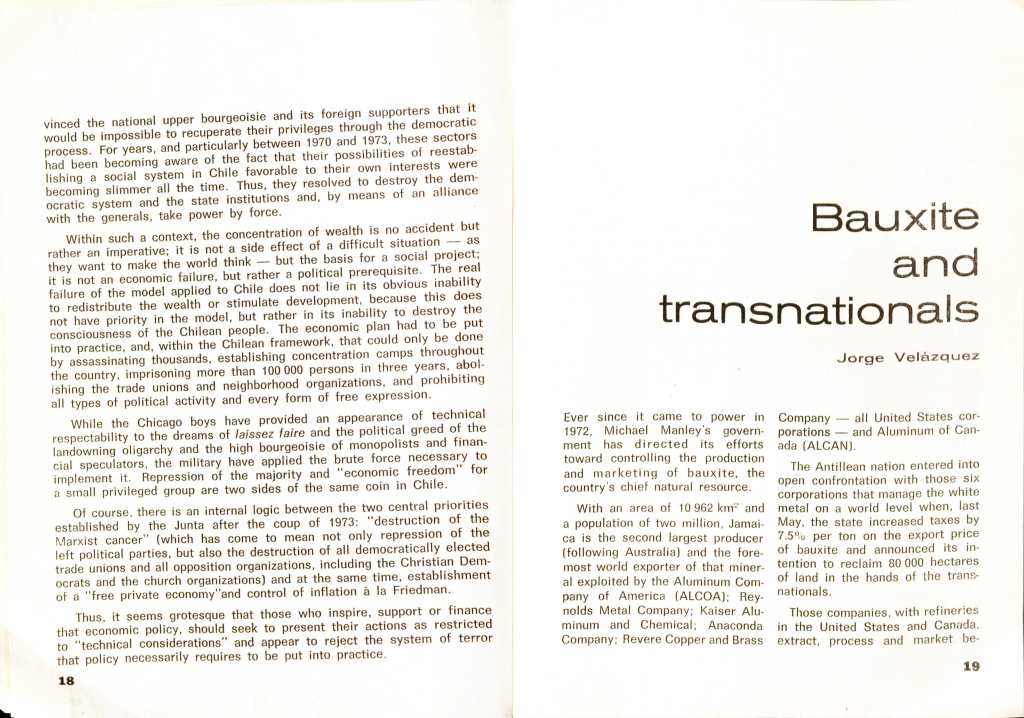



Again, it’s worth noting that while some of these journals are available online, many of them are not AND Sussex holds possibly the most comprehensive run in the UK (note – there are also some great Tricontinental posters in Senate House Library which are well worth checking out).
Online Primary Sources
The Chilean coup also provides a really good example of how we might use the online primary sources to which Sussex subscribes to study an event from different angles.
One absolutely fantastic resource is Independent Voices, a digital collection of nearly 20,000 alternative press newspapers, magazines and journals from the special collections of academic institutions. Just a quick search for ‘Allende’ brings up 986 results, across the Campus Underground, Feminist, Latino, Black America, GI Press, Little Magazines and Right Wing sections.
We can quickly drill down into some fascinating full content – such as the April 1971 issue of Space City! (published in Houston, a member of the Underground Press Syndicate) where local Texan news jostles with a report on page 7 of a trip by Stew Albert, Phil Ochs and Jerry Rubin to Allende’s Chile of ‘free milk and socialist music on the jukebox’.

If we want to get an immediate underground reaction to the coup, we can limit our search to 1973, which right away throws up the September/October edition of Redline (Boston, published by the Reservists’ Committee to Stop War). Unlike some of the contemporary newspaper accounts we’ll get onto below, Redline’s two page historical analysis of the background to the coup is grimly prescient, with its bleak sub-headline ‘A Grim Future for the Poor’. Again note the influence of Tricontinental in the cartoon on page 2.

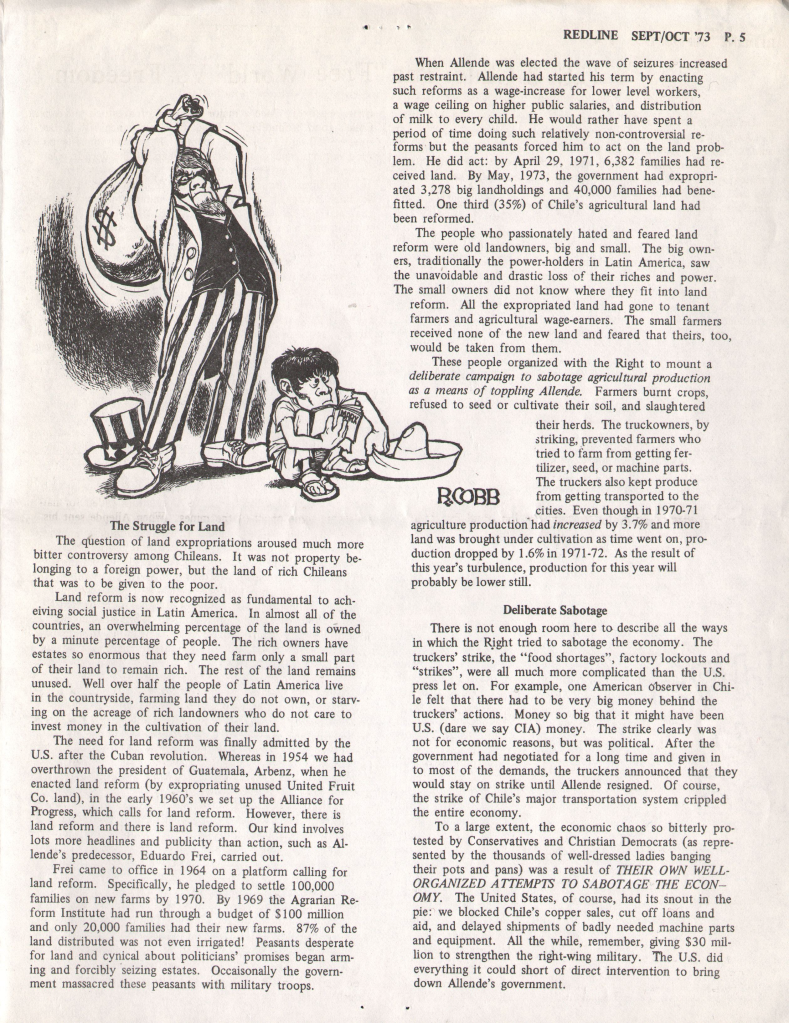
Ideas of prescience or lack thereof bring us onto another major source of primary source material on the coup – our newspaper archives. It’s a simple enough idea, but one of the absolutely fascinating things about consulting the papers in the days after September 11 is how contingent events appear. We all know NOW that the coup succeeded, that Pinochet ruled for the next decade and a half, that the Chilean road to socialism was never repeated and that in the Cold War battle of ideologies capitalism would triumph. And so it appears that this must have been inevitable (and maybe it was – but let’s not get down that philosophical rabbit hole) BUT to participants and observers at the time this was NOT the case, and it is absolutely vital in understanding history to try and see how they saw things without the benefit (curse?) or hindsight.
There’s a huge number of newspaper resources available, but we’ve just dug out a couple of examples to try and illustrate the point above and show how these collections can be used.
Firstly, let’s have a look at the Guardian and Observer Historical Archive, which we can do a quick and dirty search on for ‘Chile’, and then limit to the 12 -19 September, so we get the first week after the coup. We immediately find 45 items, and while some of these might just be about copper prices (actually, even these are going to be strongly relevant!), it’s pretty clear that most of them are about the military takeover and death of Allende, and this sheer quantity of articles is also confirmation that the world was VERY interested in Chile.
Everything here is fascinating – but let’s just hone in on an article that illustrates our point above about how contemporary accounts can show how ‘un-inevitable’ events are, with the Guardian (see below) opining gravely that the coup makes ‘a civil war with the sinister shades of Spain in 1936 nearly inevitable’. And that’s how it must have seemed to many, especially perhaps those who’d swallowed the intense Cold War communist insurgency kool-aid. In fact, as it turns out, the Soviet Union had refused Allende support, and the MIR (Movimiento de Izquierda Revolucionaria) and Popular Unity (Unidad Popular) were woefully ill-equipped to take on the country’s armed forces – so there was no civil war. But we only know that with hindsight…

Let’s turn to the Times and see what they had to say. Doing the same search, we get 37 articles, so they are pretty much as interested as their liberal rivals. We don’t have time to fully analyse the editorial angle, but they definitely seem less sympathetic to Allende, even if they’re not outright cheerleaders for the military. And they do get similar things wrong, reporting on 14 September that former Commander-in-Chief Carlos Prats was marching on Santiago. In fact he was quietly slipping off into exile in Argentina…
The articles below though, are great examples of what people mean by ‘keeping the receipts’. On September 13, as thousands of leftists were already being rounded up by the new regime, the Times was sagely musing on ‘whether or not the armed forces were right to do what they had done … a reasonable military man could in good faith have thought it his constitutional duty to intervene’. Fast-forward to March 1990 and Pinochet’s departure, and the paper is happy to condemn it in retrospect as a ‘bloody’ and ‘violent coup’.
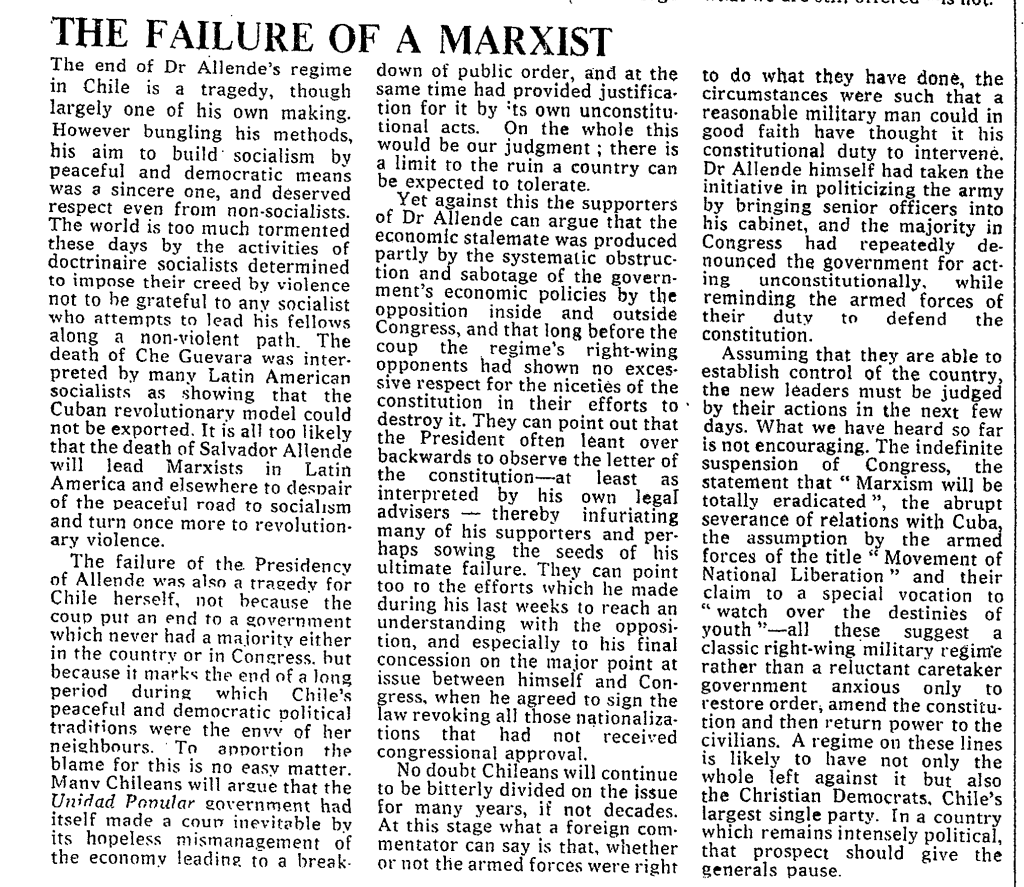
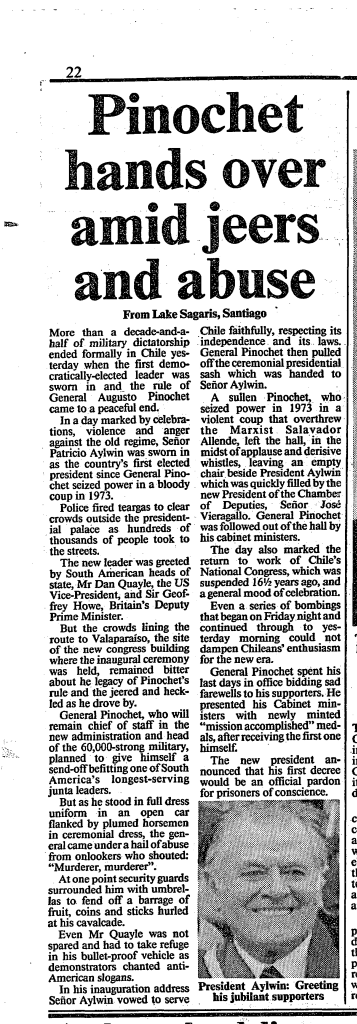
We’ve only scraped the surface of the newspaper archives and how they appertain to Chile 1973, but if this blog post isn’t going to turn into a thesis we’ll have to just consider this a taster to encourage you to explore more. Instead, we’ve just got space to turn our attention to one final resource that we wanted to highlight, the Box of Broadcasts (BoB) service, which allows you to view or listen to over 1 million TV and radio programmes. We just very quickly searched for ‘Allende’ here, and this has brought up a mixed bag of results – lots of interviews with Isabel Allende (author and cousin once removed of Salvador) and quite a lot of quiz show question answers, but also some documentaries on Henry Kissinger and a freely available recording of the film Nae Pasaran, which covers the solidarity actions of Scottish factory workers refusing to work on Chilean Air Force engines…anyway, we digress, the point being that there are other types or source out there which cast new/different lights on our initial event.
Obviously the library catalogue is full of books on Chile and Allende, and JSTOR is full of articles, but we know that as good library users you will have checked these out already! And it’s not really the aim of this post to give an exhaustive list of everything we have on the coup – more to try and show that the range of resources available and to suggest some ways in which you can use them to interrogate key moments like 11 September 1973.
As ever if you have any questions re the collections OR want to flag any inaccuracies in our account (disclaimer – we are not Chile experts!) then please do drop us a line at library.collections@sussex.ac.uk.
[NB my University of Sussex Special Collections colleagues have just pointed out a small collection of Sussex Chile Solidarity Campaign material that we hold physically but which is also available in digitised form via JSTOR.]